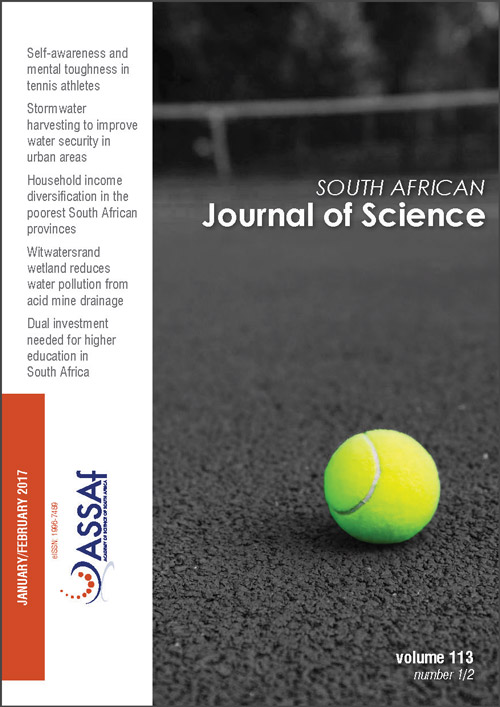On the mental toughness of self-aware athletes: Evidence from competitive tennis players
DOI:
https://doi.org/10.17159/sajs.2017/20160112Keywords:
self-reflection, self-insight, athletes, sport, South AfricaAbstract
This study examined the relationship between mental toughness (MT) and self-awareness in a sample of 175 male and 158 female South African tennis athletes (mean age = 29.09 years, s.d. = 14.00). The participants completed the Sport Mental Toughness Questionnaire and the Self-Reflection and Insight Scale to assess MT (confidence, constancy, control) and self-awareness (self-reflection and self-insight) dimensions, respectively. Linear regression indicated that self-insight (β=0.49), but not self-reflection (β=0.02), predicted global MT. Multivariate regression analyses were significant for self-reflection (ηp²=0.11) and self-insight (ηp²=0.24). Self-reflection predicted confidence and constancy (ηp²=0.05 and 0.06, respectively), whereas self-insight predicted all three MT subcomponents (ηp²=0.12 to 0.14). The findings extend prior qualitative research evidence supporting the relevance of self-awareness to the MT of competitive tennis athletes, with self-reflection and insight forming prospective routes through which athletes’ MT may be developed.
Significance:- Self-awareness attributes were predictive of higher levels of mental toughness among competitive tennis players.
- Dimensions of self-awareness may offer routes for developing athletes’ mental toughness.
Published
Issue
Section
License

All articles are published under a Creative Commons Attribution 4.0 International Licence
Copyright is retained by the authors. Readers are welcome to reproduce, share and adapt the content without permission provided the source is attributed.
Disclaimer: The publisher and editors accept no responsibility for statements made by the authors
How to Cite
- Abstract 1339
- PDF 1250
- EPUB 224
- XML 256












.png)